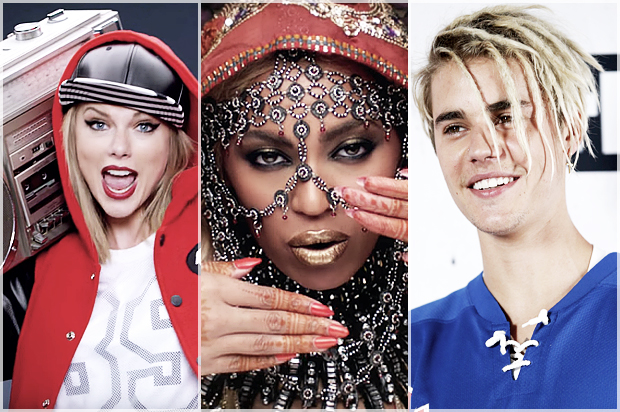As a professional writer of great acclaim, I have worn many hats. For instance, once while I was consummating my brief but sweet affair with Simone de Beauvoir in my Chicago garret overlooking the intersection of Damen and Division, she forced me to wear a beret, saying, “It reminds me of my dead father.”
I thought that was pretty weird, but I went along with it for the kink and also because novelists must be open to all experiences. In my journeys through time and space, I’ve worn a sombrero, a kepi, a kufi, a homburg, a tender bonnet, a papal miter, an alpine yodeler’s cap, a Stetson, an ascot, a beanie, a boater, a fez, various cardboard party hats — and right now a baseball cap that reads “I Like To Fuck Pussy,” which I received as a gift for giving a reading at the Alabama State Fair. Far too often, I have worn a yarmulke. Was any of that cultural appropriation? Who knows? Who cares?
I say all this because of late there have been too many incidents involving “identity politics” on our college campuses. When I attended the University of Chicago before the invention of nuclear fission, there were two identities: male, and for three students, female. Apparently, that has changed.
Now, apparently, it is unacceptable for fraternal brothers to sing “La Cucaracha” while enjoying a bottle of tequila while in the company of willing sophomore lovelies. At Duke University recently, three students were suspended for performing a song called “Lookieee I Chineeee” at a talent show. If you can’t dress in blackface to attend a class on urban economics at NYU, then are you really attending school in a marketplace of ideas? I say no.
As my colleague Lionel Shriver, author of the novels “We Need to Talk Dirty About Steven” and “The Lionel King,” recently pointed out at a literary conference in Antarctica, this has troubling implications for our fiction. As the British literary critic (and my romantic rival) Nigel Balderdash once wrote: “What was Conrad without the jungle, Greene without the Sierra Madre? The colonies gave us literary inspiration and that shall not be torn asunder.”
I took my cues from that noble essay titled “The World Is Our Spicy Oyster: Why White Men Can Write About Whatever They Want,” and then I produced some great works of literature.
Without “cultural appropriation,” I never would have written my seminal work of Native-American romance, “The Sioux Who Loved the Eskimo,” or my 1971 book of travel essays, “Homos of The Pampas.” I couldn’t have written the book and subsequent screenplay for my greatest work, “Leon: A Man of the Streets,” or my book of alternative slave history, “The Repression Of Turner Natterson.”
Yes, I was a man when I wrote “The Labia,” a dark Kafka-esque comedy about a guy who wakes up one morning transformed into the inner and outer folds of a vagina, and I was also a man when I wrote “Rise of the Ball Breakers: An Anti-Feminist Manifesto.”
What of it? Would our politically correct literary gatekeepers deny me the pleasure of penning a novel about a bumbling Jewish man who marries into a large Asian family? Under today’s literary austerity, I never would have written “The Joy Schmuck Club.”
For instance, in my latest novel, I have a character who is a 97 years old, black and homosexual. Now, I have been all of those things at one time or another in my life though I am none of them now. But today’s cultural gatekeepers would deny me my agency just because I am racist or homophobic. This is not just. This is not right.
Some academic broad whose name I can’t remember defines cultural appropriation as “taking intellectual property, traditional knowledge, cultural expressions, or artifacts from someone else’s culture without permission. This can include unauthorized use of another culture’s dance, dress, music, language, folklore, cuisine, traditional medicine, religious symbols, etc.”
That, as we used to say back at my partially integrated racquet club, is a load of diseased horseshit. Do we fiction writers, the noblest and least fallible humans alive, have to seek “permission” to use a character from another race or culture or to employ the sexual slang terms of a group to which we don’t belong?
What are we supposed to do? Ask pretty please on Twitter? Get a visa from the Vietnamese government? No. We must publish our fiction like writers always have: By going to college with literary editors and making sure to send them holiday gift baskets whether we like them or not. That time-honored tradition will stand long after multiculturalism has gone the way of ashtrays in airplane seats.
Because who is the appropriator par excellence, really? Who has the chutzpah to be the master ventriloquist, learning how to speak and dress like other people so they can sneak into Mecca for a Travel + Leisure article? Who wrote the book of love? Who can make a rainbow, sprinkle it with dew, cover it with chocolate and a miracle or two? The writer man. The writer man can.
Who took the multicultural cookie from the cookie jar? Who, me? Yes, you. Couldn’t be. Then who?
Being Chinese is not an identity. Being Mexican means nothing. No one cares if you are a lesbian girl. Only one thing matters: writing and writers, and the truth we tell, no matter our background. Whether you are the heir to a large industrial fortune and graduate of every Ivy League school, like I am, or some poor Puerto Rican guy, once you join the galaxy of literary stars, nothing is off-limits.
You can wear whatever hat you want. In fact, I’m wearing a sombrero right now. And I’m happily touching myself in the darkest of places while simultaneously writing this essay and a novel about transgendered Indonesian sex workers. I claim full cultural agency. No one can stop me, because I am The Greatest Living American Writer.


